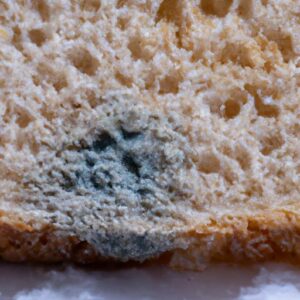Cooking oil is an essential ingredient in many kitchens, adding flavor and texture to our favorite dishes. But have you ever wondered if cooking oil can go bad? Does it have an expiration date? These are common questions that arise when it comes to using cooking oil. In this article, we will dive into the importance of using fresh cooking oil and address the burning question: does cooking oil expire?
A. Importance of using fresh cooking oil
Using fresh cooking oil is crucial for several reasons. Firstly, fresh oil ensures that the flavors of your food are at their best. Just like using fresh ingredients, cooking with fresh oil can enhance the taste and aroma of your culinary creations. Imagine the difference between a perfectly crispy fried chicken cooked in fresh oil versus one that’s been sitting in your pantry for months. The freshness of the oil can make or break the dish.
Secondly, cooking with expired oil may have negative effects on your health. As oil ages, it undergoes chemical changes that can lead to the formation of harmful compounds. Consuming these compounds regularly can potentially increase the risk of various health issues. Therefore, using fresh cooking oil is essential for maintaining a healthy and balanced diet.
B. Common question: Does cooking oil expire?
Now, let’s address the question everyone wants to know: Does cooking oil expire? The answer is yes, cooking oil does have an expiration date. However, the exact shelf life of cooking oil can vary depending on several factors. Factors such as the type of oil, storage conditions, and processing methods can influence how long the oil remains fresh and safe for consumption.
In the next sections, we will explore what cooking oil expiration means, how to identify if your oil has gone bad, the consequences of using expired oil, and tips on extending the lifespan of your cooking oil. So, let’s dive in and uncover the secrets of cooking oil expiration together!
Stay tuned for Section II where we will delve deeper into understanding cooking oil expiration and the factors that influence its shelf life.
Understanding cooking oil expiration
A. Definition of cooking oil expiration
Cooking oil expiration refers to the point at which the oil becomes unfit for consumption or loses its desired qualities. While cooking oil doesn’t necessarily become poisonous after its expiration date, it may undergo chemical changes that affect its taste, nutritional value, and safety.
B. Factors influencing cooking oil’s shelf life
Several factors contribute to the shelf life of cooking oil:
-
Type of oil: Different types of cooking oil have varying levels of stability and oxidation rates. For instance, oils high in polyunsaturated fats, such as soybean or sunflower oil, are more prone to oxidation and have a shorter shelf life compared to oils high in monounsaturated fats, like olive or avocado oil.
-
Storage conditions: Proper storage is crucial for preserving the freshness of cooking oil. Exposure to heat, light, and air can accelerate the oil’s degradation process. Storing oil in a cool, dark place, tightly sealed and away from direct sunlight, can help extend its shelf life.
-
Processing methods: The way cooking oil is refined can affect its stability and shelf life. Oils that undergo processes like refining, bleaching, and deodorizing tend to have a longer shelf life compared to unrefined or cold-pressed oils.
C. Types of cooking oil and their typical expiration periods
Different types of cooking oil have varying expiration periods. Here are some common cooking oils and their general shelf life:
-
Canola oil: Canola oil typically has a shelf life of about one to two years when stored properly.
-
Olive oil: Extra virgin olive oil, known for its superior quality, has a shelf life of around two to three years. However, other varieties like pure and light olive oil have shorter shelf lives.
-
Coconut oil: Coconut oil is highly stable due to its high saturated fat content. It can last up to two years or even longer.
-
Vegetable oil: Vegetable oil, often a blend of different oils, usually has a shelf life of one to two years.
Remember, these are general guidelines, and the actual shelf life may vary depending on the specific brand, storage conditions, and other factors. It’s important to check the manufacturer’s recommendations and use your sensory judgment to determine if the oil is still suitable for use.
Stay tuned for Section III where we will explore the signs of expired cooking oil and how to identify them.
Signs of Expired Cooking Oil
When it comes to determining if your cooking oil has expired, there are several telltale signs to look out for. By being aware of these signs, you can ensure that you’re using fresh and safe cooking oil in your kitchen. Let’s explore the key indicators that your oil has passed its prime:
A. Changes in appearance
One of the first signs of expired cooking oil is a noticeable change in its appearance. Fresh oil typically has a clear, golden color, but as it ages, it may become cloudy, dark, or even develop sediment at the bottom of the container. These visual changes are indications that the oil may have started to break down and should be discarded.
B. Off smell or rancid odor
Another unmistakable sign of expired cooking oil is the presence of an off smell or rancid odor. Fresh oil has a neutral or slightly nutty aroma, while expired oil may emit a foul or unpleasant smell. If you detect a strong, pungent odor when opening your oil bottle, it’s a clear indication that it’s time to bid farewell to that particular batch.
C. Unpleasant taste
Just as the smell can give away the deterioration of cooking oil, the taste can also provide valuable clues. If your food prepared with the oil has an unusual or unpleasant taste, it’s likely that the oil has expired. Rancid oil can impart a bitter or sour flavor to your dishes, compromising the overall quality of your culinary creations.
D. Smoke point reduction
The smoke point of cooking oil refers to the temperature at which it starts to smoke and break down, leading to the release of harmful compounds. As cooking oil ages, its smoke point tends to decrease. If you notice that your oil is smoking at lower temperatures than usual, it could be a sign that it has expired. Using oil with a reduced smoke point can not only alter the taste of your food but also pose potential health risks.
By being attentive to these signs of expired cooking oil, you can maintain the quality and safety of your culinary endeavors. In Section IV, we will explore the impact of using expired cooking oil in more detail and understand why it’s crucial to prioritize freshness in your kitchen.
Stay tuned for Section IV where we will uncover the consequences of using expired cooking oil and the potential risks involved.
Section IV: The Impact of Using Expired Cooking Oil
Using expired cooking oil can have significant consequences that go beyond just the taste of your food. Let’s explore the various ways in which expired oil can impact your health, the quality of your dishes, and even your cooking equipment.
A. Nutritional Degradation
One of the primary concerns when using expired cooking oil is the nutritional degradation it undergoes over time. As oil ages, it may lose its beneficial properties, such as essential fatty acids and vitamins. The degradation of these nutrients can diminish the nutritional value of your meals. Cooking with fresh oil ensures that you’re getting the maximum nutritional benefits from your ingredients.
B. Increased Health Risks
Using expired cooking oil can pose potential health risks. Over time, the chemical composition of the oil changes, leading to the formation of harmful compounds, such as free radicals and trans fats. Consuming these compounds regularly can contribute to various health issues, including cardiovascular diseases, inflammation, and oxidative stress. To safeguard your health, it’s crucial to use fresh cooking oil and avoid the risks associated with expired oil.
C. Negative Effects on the Taste and Quality of Food
Expired cooking oil can significantly impact the taste and quality of your culinary creations. When oil goes bad, it develops a rancid odor and taste, which can transfer to the food you cook with it. This can result in unpleasant flavors and aromas that overpower the natural essence of your dishes. Using fresh oil ensures that your food retains its intended taste and quality, allowing the flavors to shine through.
D. Potential Damage to Cooking Equipment
Another consequence of using expired oil is the potential damage it can cause to your cooking equipment. As oil deteriorates, it may develop impurities, including sediment and water content. When these impurities are heated, they can create smoke, splatter, and even cause your pan or fryer to become coated with a sticky residue. This can be challenging to clean and may affect the performance and longevity of your cooking utensils.
In Section V, we will uncover the secrets of extending the lifespan of your cooking oil through proper storage and handling techniques. Stay tuned to learn how to keep your oil fresh and maximize its usability.
Proper Storage and Handling: Extending the Lifespan of Cooking Oil
When it comes to ensuring the longevity of your cooking oil, proper storage and handling play a crucial role. By following a few simple guidelines, you can extend the lifespan of your oil and maintain its freshness. Let’s explore the key factors to consider when it comes to storing and handling your cooking oil.
A. The role of heat, light, and air exposure
Heat, light, and air exposure are the main culprits that can accelerate the deterioration of cooking oil. To prevent premature spoilage, it’s important to store your oil in a cool, dark place. Excessive heat can cause the oil to break down, leading to off flavors and diminished quality. Light exposure can also contribute to oxidation, which can further degrade the oil’s taste and nutritional value. Therefore, keep your oil away from direct sunlight and store it in a tightly sealed, opaque container to minimize light exposure.
In addition, air exposure should be minimized to prevent the oil from coming into contact with oxygen. Oxygen can cause oxidation, leading to rancidity and a shorter shelf life. When using your oil, make sure to seal the container tightly after each use to limit air exposure.
B. Best storage practices
To maximize the lifespan of your cooking oil, consider the following storage practices:
-
Choose the right container: Opt for a container made of a material that is resistant to light and air, such as dark glass or metal. Avoid plastic containers, as they may not provide adequate protection against light and air.
-
Store in a cool place: Find a cool and dry spot in your kitchen or pantry to store your oil. Avoid areas near the stove, oven, or other heat sources, as they can raise the temperature and accelerate oil degradation.
-
Check the expiration date: Before purchasing cooking oil, check the expiration date on the packaging. Choose oils with a longer shelf life to ensure they last longer in your pantry.
C. Tips for handling cooking oil to prevent contamination
Contamination can also affect the quality and safety of your cooking oil. Follow these tips to maintain a clean and uncontaminated supply:
-
Use clean utensils: When scooping or pouring oil, ensure that your utensils are clean and dry to prevent the introduction of foreign particles or moisture into the oil.
-
Avoid cross-contamination: Keep different types of cooking oils separate to avoid cross-contamination and maintain the unique flavors and characteristics of each oil.
-
Store away from strong odors: Cooking oil can absorb strong odors from adjacent spices and ingredients. Store your oil away from pungent or aromatic substances to preserve its original taste and aroma.
By implementing these storage and handling practices, you can significantly extend the lifespan of your cooking oil while preserving its quality and flavor.
Stay tuned for Section VI where we will recap the importance of checking cooking oil expiration and conclude our exploration of cooking oil freshness.


